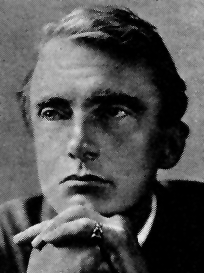Explanatory Note on The Owl by Edward Thomas
The poem �The Owl� by Edward Thomas is a sharp focus on the undeniable necessity of three fundamental things � food, fire and rest for a healthy and comfortable life. The poem gives two contrasting pictures: fulfillment and deprivation.
The speaker in the poem �The Owl� was hungry but not starved when he was coming down the hill. Though he was trembling by dint of cold, he was warm enough inside to protect himself against the chilling north wind. He was very tired. He was feeling weary and getting faint. Evidently, he was badly in need of rest. Nothing other than rest under a roof was the �sweetest thing� to him in such hard times.
The second stanza of the poem �The Owl� by Edward Thomas shows the fulfillment of the speaker�s needs for immediate comfort. He came across an inn at the foot of the hill. At the inn, he got food, fire and rest. He got shelter in a room with fireplace to warm up himself, food to satisfy his hunger and a bed to lie down. Satisfaction and happiness result from the fulfillment of needs. But, his happiness was momentary and disappeared with the melancholy cry of an owl.
The night at the inn was calm and quiet. The screaming voice of an owl penetrated the silence of the night and disturbed the speaker�s mental state. When the speaker was resting in the inn, feeling of suffering from numbing cold, hunger and weariness was outside the inn. The plaintive cry of the owl reminded him of the inexplicable suffering which he himself had undergone when he was on the hills.
The speaker was lucky to escape the suffering and pain on the hill, but many other soldiers were suffering from the bites of cold and fighting with the stings of hunger. There was no means of merriment on the hill. Being reminded of this heart-rending fact by the owl�s cry, he felt sorry for those who could not escape the miserable condition.
Overwhelmed by such penetrating thoughts, the speaker found the food and rest pleasing little. The food felt tasteless to him. He lost his interest in relaxation. His heart went out to the soldiers at the front and the poor who were deprived of the basic needs of life by ill fate. They had no food to extinguish the flames of hunger in their stomach, no roof over the head to keep the biting cold out and no source of joy to get relieved of suffering.
The last stanza of the poem 'The Owl' reveals the speaker�s conscience and humanity. The owl�s cry is symbolic of the voice of his conscience. The moment he was going to feed himself in the inn, his conscience woke up and he fell in mind of the suffering soldiers at the front and the starved poor lying under the open sky.
Click here for more English literature study notes
Click here for more English literature study notes


Comments
Post a Comment